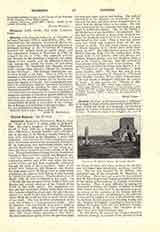

Climent, Jose, Spanish bishop, b. at Castellon de la Plana (Valencia), 1706; d. there November 25, 1781. Distinguished for his charities, educational efforts, eloquence, and exemplary life, he studied and afterwards professed theology at the University of Valencia, labored for several years as parish priest, and was consecrated Bishop of Barcelona in 1766; he resigned his see in 1775. His episcopal activity was directed to the founding of hospitals, the establishing of free schools, and the diffusion of knowledge among the people by means of low-priced publications. He translated into Spanish several works, among them Fleury’s “Mceurs des Israelites et des Chretiens”. His pastoral instructions contributed largely to his fame. That of 1769, on the renewal of ecclesiastical studies, caused him to be denounced to the court of Charles III for having eulogized the Church of Utrecht; but a commission composed of archbishops, bishops, and heads of religious orders, appointed to examine his case, returned a decision favorable to the prelate. The sway he held over his people was shown by his success in quelling a dangerous uprising in Barcelona against military conscription; but this only served still further to render him obnoxious to a suspicious court. He refused, on conscientious grounds, a promotion to the wealthy See of Malaga, and withdrew to his native place. His life was published in Barcelona in 1785.
JOHN H. STAPLETON

